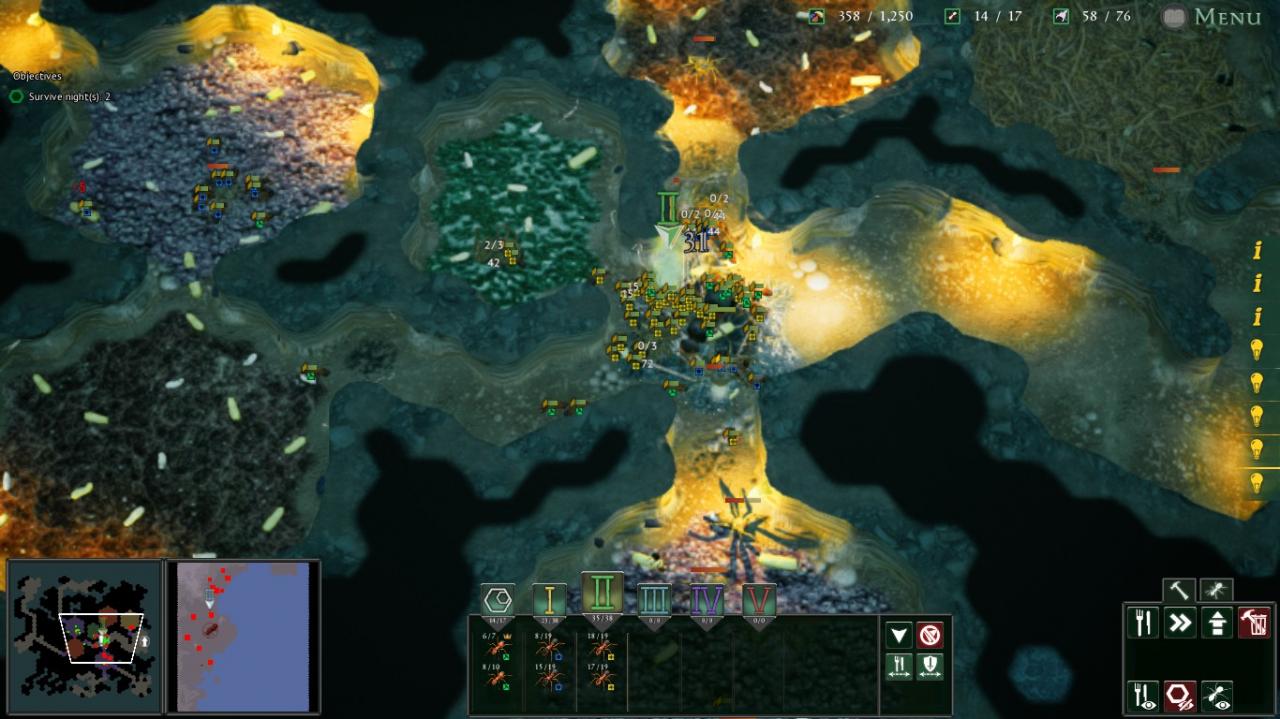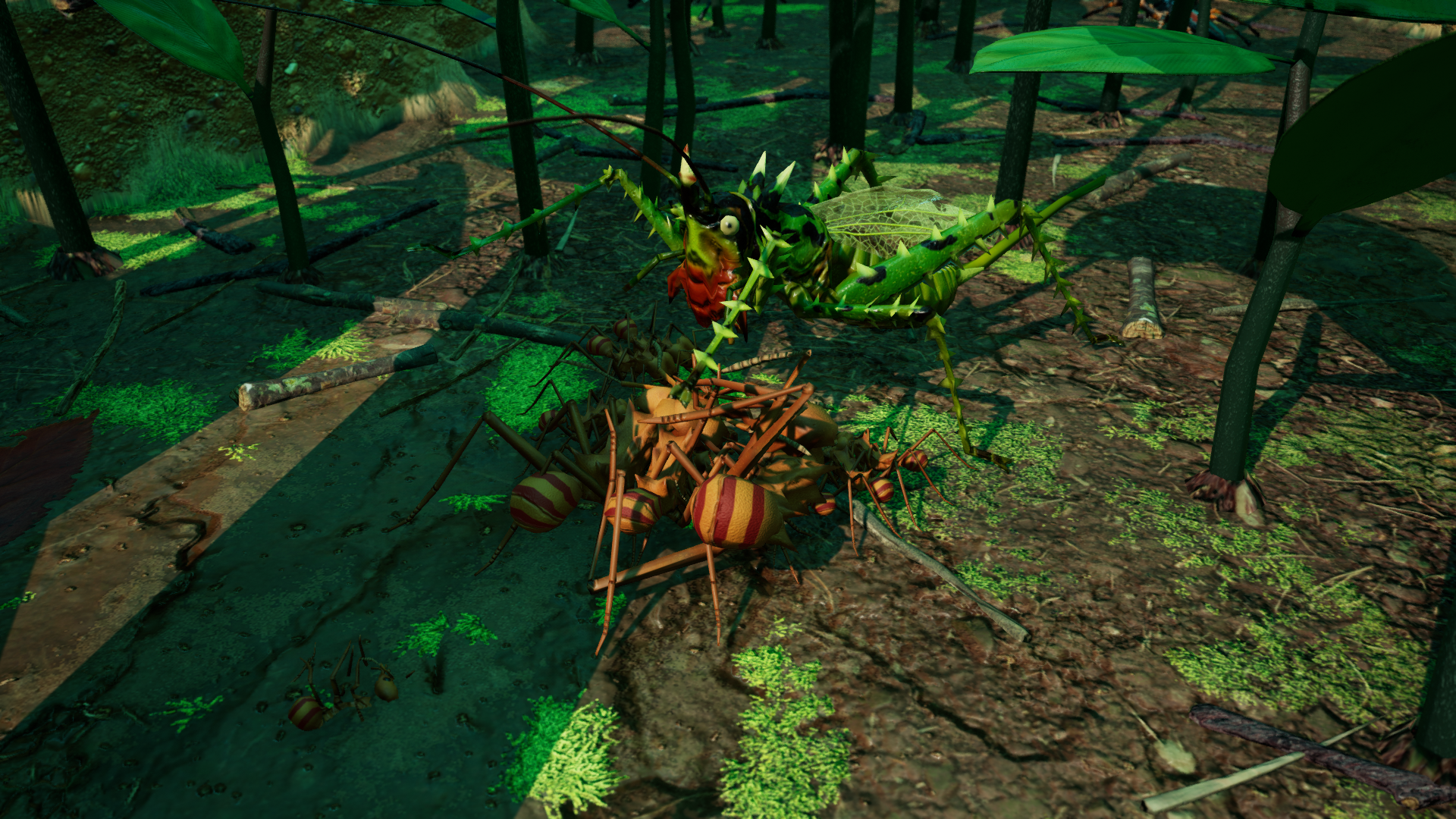

Despite failing a number of times on the first mission while learning the mechanics, I completed all the available content in less than five hours of play. In its current state, “Empires of the Undergrowth” is a game worth playing, albeit a short one. Building in the way the mechanics encourage results in a base which ultimately looks a lot like a real ant colony-something the developers surely intended, making the gaming experience even more realistic. As you build out your underground empire, you are encouraged to build brood chambers in hexagonal shapes, as units can only be fully upgraded-and thus unlock powerful passive bonuses-if they are surrounded on all sides by other brood hexes. The combat is macro-based, focusing more on amassing a large force of the correct composition of ants as opposed to careful control of any one unit. In terms of systems, “Empires” plays very much like the classic RTS games which inspired it. The narrator’s grave tone gives the whole experience a sort of gravity it might otherwise have lacked. The narration is really spot-on in this regard. You control a wild ant colony being observed by a documentarian. While in the lab, the player is essentially left to his or her own devices apart from some commentary by the unseen scientists running their experiments on the colony. In addition to the unique subject matter, the narration is another distinctive aspect of the game. Here is where the game’s attention to narrative game design makes what could have been a lackluster experience really shine. The only way to evolve your brood and prepare for large-scale assaults is to take on missions outside the colony. Your home base is the formicarium, where resources are limited and must be earned through progression. The main storyline centers on a fictional new breed of ant, formica ereptor, whose ability to incorporate the DNA of other ants into its own brood makes it an object of interest to scientists. Though the game is still in Early Access on Steam-meaning that it is still undergoing active development-the mechanics are all in place and the game is shaping up to be a unique entry in the RTS genre.

The game is framed as a nature documentary: The narrator observes as the player directs their colony to harvest food, develops a brood of ant workers and soldiers, and battles other creatures. In the style of classic real-time strategy (RTS) games like “Dungeon Keeper,” where players carve out an underground lair and build up their economy and military forces, indie game company Slug Disco’s newest game places the player in control of an ant colony in a number of situations. Ants: they’re creepy to some, cute to others, and inspirational to a handful of independent video game developers.


 0 kommentar(er)
0 kommentar(er)
